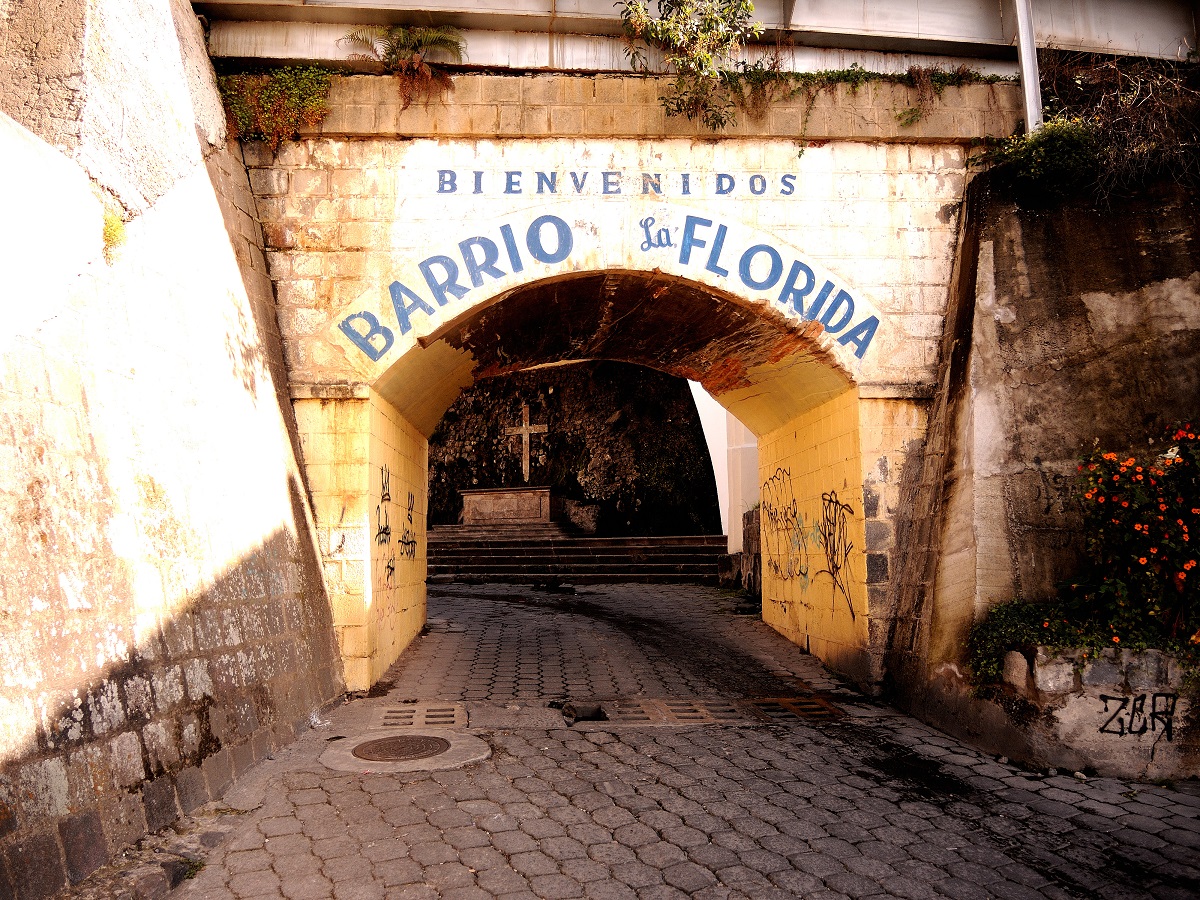Some of you may have read about the Western expat phenomenon. While there’s been a great deal of recent press dedicated to both legal and illegal immigration into the USA, Australia, New Zealand and the Western European countries, there’s been a quieter flow of Western retirees and digital nomads retreating from post-industrial economies to the developing world.
In my travels, I’ve met Americans living in Mexico, Guatemala and Ecuador, Australians and Kiwis living in Indonesia and Malaysia, Brits living in Spain and Thailand, and Germans, French, Dutch etc. living in all the afore-mentioned countries plus a handful of other destinations. While expat retirees may have a different set of criteria than their younger digital nomad counterparts, they all share the desire for a reasonable cost of living, temperate climate and lower levels of stress in their daily lives.
During my recent visit to Ecuador, I was (for the first time) given an insiders view of one of the most popular expat communities in the country, Cotacatchi, a city with a total population of around 10,000 which is tucked away between two towering volcanoes in the northern part of the country. For the most part, the Ecuadorian cities of Cuenca, Otavalo (and Cotacatchi) are destinations for American retirees, a sort of Andean counterpart to Mexico’s expat beach communities in Puerto Vallarta and the Yucatan peninsula.
I’ve seen statistics indicating as many as one million Americans live in Mexico for at least part of any given year, while an estimated 5,000 American expats live in the southern Ecuadorian city of Cuenca. Approximately 500 (mostly) American expats call the much smaller city of Cotacatchi home.

Building in the form of a hummingbird in Otavalo, Ecuador
While Mexico has been an American destination for decades, many expats are now choosing countries such as Panama and Ecuador, both of which have adopted the US Dollar as their main currency. More adventurous American digital nomads along with Western Europeans are choosing to settle in neighboring Colombia instead, a country that has made dramatic strides in public security over the past decade.
As is true of any new human phenomenon, a host of entrepreneurs have seized the opportunity to develop services that cater to these legions of expats, with helping them to find the perfect home in their new country being the most profitable. Many of these companies, such as International Living, offer an array of services and sugar-coat the information they provide in order to sell everything from magazine subscriptions to luxurious palm and bougainvillea-draped estates with magnificent views.
Accepting that the expat phenomenon has been steadily growing for the past 20 years and has accelerated over the past decade, I’ll mention the two primary reasons Western expats usually give for exchanging their home countries for life abroad.
#1 Cost of Living
Number one on most expat lists would be a lower cost of living. As older generations retire, they are realizing that they often must sacrifice their quality of life when they stop working. With the continually increasing cost of housing in most Western countries, it’s becoming apparent to many individuals and couples that retirement savings aren’t going to be sufficient to maintain the lifestyles to which they’ve grown accustomed.
For example, a 2-bedroom apartment that would rent for US $2,000 per month in many major Western cities may cost only $500 or less in many areas popular with expats who are willing to relocate abroad. Likewise, there’s a huge cost savings for electricity, water, mobile phone and internet services in the developing world.
The staggering cost of health insurance in the USA, and the absolute necessity of having it, is often cited as a primary reason when Americans move abroad. The establishment of top quality health care centers in countries such as Mexico and Thailand is another phenomenon, along with the rapid rise in health care costs, that has convinced many Americans to opt for a more permanent solution to their health care worries by relocating their primary residence.
In addition, warm year-round climates provide access to fresh foods at lower prices than these expats would pay back at home for often tasteless factory-farmed produce, meat and eggs.
#2 Weather
It’s no surprise that the countries most popular with expats who’ve lived most of their lives in far northern or southern latitudes are located in the tropical zone. In the USA, the seasonal migration of northern ‘snow-birds’ to states such as Florida and Arizona is a long-established pattern. The more recent expat phenomenon is just an extension of that trend with considerable cost savings included.
In addition to a lower cost of living and tasty produce, the communities where the more affluent expats are relocating often provide arts and entertainment such as concerts that cater to the newcomer’s tastes. I attended a free classical guitar concert while I was in Cotacatchi that featured very talented and accomplished musicians from both Ecuador and Mexico.
Friendly locals, a low cost of living, year-round warm temperatures, fresh, tasty food and high-quality entertainment to boot! What more could an expat ask for, right?
But is it all sweet mango and warm sunshine?
This is where the waters begin to get a bit murky. As a long-term expat, I can bear witness to the fact that living abroad isn’t always a picnic. There are constant challenges evident in simply accomplishing the daily necessities, much less overcoming the on-going language and cultural barriers. When you’re in someone else’s country, you can’t expect the locals to adapt to the way of life you left behind in your home country. You’re the one that has to change your pattern of thinking.
The locals may use the street in front of your house as a garage to work on their cars or motorbikes with revving engines a certain annoyance. There are sure to be plenty of large and small dogs barking at all hours, along with music being played at high volume, again at any time of the day or night.
Don’t expect any municipal noise ordinances to rescue you since many cultures simply have a different sensibility about what constitutes an unacceptable level of noise. Add to that the often lower standards for sanitation and care for the environment, and there could be sufficient fodder for discontent within the ranks of many expat communities.
As much as I love the majestic beauty of the Ecuadorian highlands, the ubiquitous buses and trucks consume very poor-quality government-subsidized diesel fuel that produces billowing black smoke whenever they accelerate. It makes me cough and burns my eyes and nose. The only way to escape the lung-damaging fumes is to live outside the city on some acreage, but that would add the necessity of owning and driving a car which presents an entirely new set of challenges along with additional expense.
I just pray that Donald Trump’s Administration isn’t successful in returning environmental standards in the USA back to such dismal levels because people’s health will suffer, especially children whose developing lungs are more susceptible to damage from dirty air. Preventable diseases such as asthma are wide-spread in countries with poor environmental standards.
Most of all, it’s the language and cultural barriers that tend to encourage Westerners to relocate to expat ghettos where they will have the support and companionship of people who speak the same language and with whom they can commiserate about the short-comings of their newly adopted culture. What’s unfortunate about this is that it robs both the expats and the locals of the kind of valuable cultural exchanges that are so important in promoting international understanding.

Entrance to a local neighborhood in Otavalo, Ecuador
Advice for other potential expats
I’ll put this bluntly: I would advise people who aren’t interested in adapting to and learning from a different culture to stay at home within their own comfort zone. At the very least, before you seriously consider settling abroad, several exploratory trips of the longest possible duration should be made to prospective new areas in an effort to get the best possible idea of how you’d feel living long-term in a new culture.
And, don’t even consider buying property abroad until you’re 100% sure it’s going to be your home, and only after having lived full-time in your new community for one year or more. It’s often difficult to sell properties quickly in case you decide you want to move on. Plus, property rights laws can be quite different from the USA or Europe, so you should always consult an attorney that comes with good recommendations from others within the expat community and ask tons of questions about land use regulations.
It’s also a good idea to meet any locals that might be living in an adjacent property, although in many cultures it isn’t polite to show one’s true feelings so don’t assume they approve of your purchase just because they’re friendly. There’s often resentment when Americans and other seemingly more affluent outsiders start buying property in a developing country since this can eventually raise the overall price levels to a point which excludes the locals from home and land ownership. This can become a major source of discontent within the local population.
So, back to Cotacatchi
Based on the real-life stories I heard from the expat community in Cotacatchi, it seems there’s often a pattern that many folks follow. There’s a honeymoon period of several months filled with excitement and wonder as the recently arrived expats explore and discover their new surroundings. After this period, those niggling little cultural differences that were once mere curiosities fester into frustration and anger and may even produce depression, anxiety and a sense that relocating was a huge and costly mistake.
As the expats become more dissatisfied with their situation, they begin looking at other locations, often within the same country in an effort to salvage some of their costs in setting up house and save face with friends and relatives back home who may have advised against such a move in the first place. After a period of between two and five years abroad, many expats return to their home countries for a variety of reasons, but mostly because they miss the comforts (both physical and emotional) of a place that still feels like ‘home’.
I’m not writing this to discourage anyone who may be considering a life abroad. I say “go for it” and have a great adventure! My aim is simply to raise a caution flag and urge those considering such a move to not dig their heels into foreign soil too deeply until they’re sure it’s the right situation for them at that point in their lives.
peace~henry



Interesting article Henry! I would agree with you. Living in a developing country however pleasant initially is challenging. The noise, smells , heat and sanitation, the poor air quality, the culture shock – do not critize, do not challenge authority usually military or some elite., do not expect service just because you are disabled or old or gay or a woman. Usually only money will protect you. If you don’t have lots of it stay home. However, if you have some connection to the new country, having worked there or married to a local you can find a way to appreciate how we are all in the end interconnected by a shared humanity, respect and sympathy. If on the other hand you look down on and act superior towards the locals you can start packing your bags and go back home to the same person you were before you decided to look for a way to budget on your retirement. You need to open your mind and heart rather than open your wallet and if your values were formed by imposed societal pressures back home you may find living in a less developed country too much of a challenge when it come to exploitation of your fellow human beings .
LikeLike
Hi Kevin,
I apologize for the late response. I’ve been getting my flat set up in Colombia and have been facing all the challenges you mentioned X10! Thanks so much for sharing your keen insights as a long-time expat. Thanks for your support too!
LikeLike
Very accurate description of what happens when relocating in a new culture, along with sound advice how to go about it. I would emphasise, based on my own experience, that the best will in the world towards your fellow human beings will not help you live happily in a culture that just doesn’t agree with you.
LikeLike
Hi Marios,
Sorry for the late response to your poignant comments. I’ve been reliving all the stress that’s inevitably brought on by relocating to a new culture–this time Colombia. Latin America is quite different from the Middle East and Asia , so I’m trying to adjust. Thanks again for your support!
LikeLike